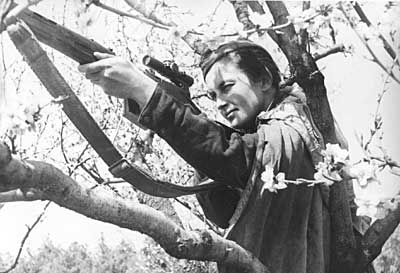I was riveted by the final episode of Battlestar Galactica, right up to the point that the Galactica came out of her last jump and moved past the Moon over to Earth. Our Earth, not the Earth of the Thirteenth Colony. After that? Ecch!
It has been clear all along that the show had an undercurrent of divine intervention. But this was a little much for me. I understood that the Six inside Baltar's head and the Baltar inside Caprica Six's head were angels. Starbuck as an angel, though, seemed a bit much. So did the idea that all 38,000 Colonials and skin-job Cylons would willingly abandon all technology and become Stone-Age farmers and hunter-gatherers on a planet that has small groups of human hunter-gatherers, who are genetically-compatible with the Colonials/Cylons.
I guess the point that within a year or two, 95% of those people will have probably starved to death didn't make it into the cheeriness of the final episode.
It just doesn't sit right with me. Battlestar Galactica has spent just over five years (the miniseries aired in December, 2003) as one of the darkest SF shows around. It began with a surprise attack on the Twelve Colonies that killed tens of billions of people; from there it explored themes of hard-edged survival, occupation, resistance, medical experiments on people, torture, suicide bombings, rigged elections, and so on and so forth. The last hour of the show felt as though a pack of writers from Star Trek had parachuted into the show to bring light and love to the ending.
Compared to the darkness that permeated the show (miniseries, Razor and 73 episodes), the last episode was like dragging the needle arm across a record. So we have the hand of the Almighty bumping a dead Raptor to nuke the Cylon colony (presumably wiping out most of the remaining ones, fours, fives and eights) and making resurrection impossible for them and, in another bit of divine intervention, angel-Kara enters the numbers she derived from the Cylon-Song, which were the coordinates for our planet, into the jump computer. Plus, the idea that, after all that had gone on before, John Cavil ate his gun was a bit unbelievable.
And, of course, the Dying Leader Knew the Truth of the Opera House. Not to mention that Hera Agathon is the "Mitochondria Eve," the Great(x 7,500) Grandmother of us all.
Look, I expected the Colonials to find a habitable planet. But dropping onto our world 150,000 years ago, agreeing to abandon all technology, and acting as the spark to take humans on this planet from loose tribes of non-speaking hunter-gatherers to eventual civilization is a bit too much for me to swallow. In essence, the Colonials are acting as the Black Rectangular Stone from "2001, a Space Odyssey".
I expected the last hour to, well, be in tune with the rest of the show and not be so frakking cheery. I will probably watch the last three hours again to see if I still feel this way.
For now, color me "disappointed."


4 comments:
So a bit of a mixed reaction then it would seem? Just thinking about it, I have to agree with you that the majority of people would probably starve to death! Posted a review myself over the weekend, do you agree with any of the points I've raised?
http://jamesjacob77.blogspot.com/2009/03/battlestar-galactica-daybreak-part-2.html
Hi Stephanie, I agree. The change of tone was wrong, especially when the quest for survival became in the end a quest for active or passive suicide -- don't forget that Admiral Adama went off on his own, which meant certain death. His response to all this was killing himself? Fuck that.
Most of all I didn't like the way the Hand of God was played so badly. It amounts to a stupid God who showed up only to aid the poor plotting skills of the authors. Don't know what to do about Kira? God. Don't know how to explain HeadSix or HeadGaius? God's angels.
This God was capable of doing all sorts of things except communicating clearly with His creatures and working out a solution to horrible problems that isn't in one way or another just as bad as the initial problems.
God? No, just an idiot with big toys. Or, rather, writers who couldn't plan ahead, and wound up creating an idiot god. Deus ex machina was considered bad playwriting in Greek times. Still is.
it was no so much. I do hate the omnipotent being
theme as being a way out. Making it a "let them try it again, hoping for a different result" sequence is the very definition of insanity.
Despite the bright sun and cheery we see at least the major characters going off to die, likely alone assuming they don't starve or encounter an ice age. Seemed fate is a alter for deja vu.
Reminded me way to much of "On the Beach" a
dark high school read where atomic war happens and people are doing the suicide thing as it's all too hopeless.
Feh!
Eck!
I would think that, as a method of suicide, that death by starvation would be particularly unpleasant.
They have knives and firearms, after all.
Post a Comment